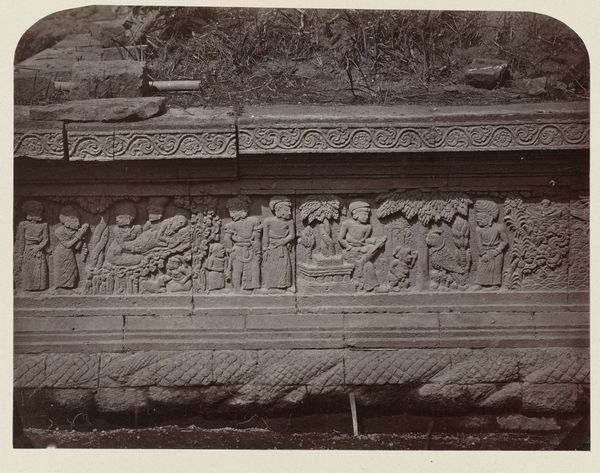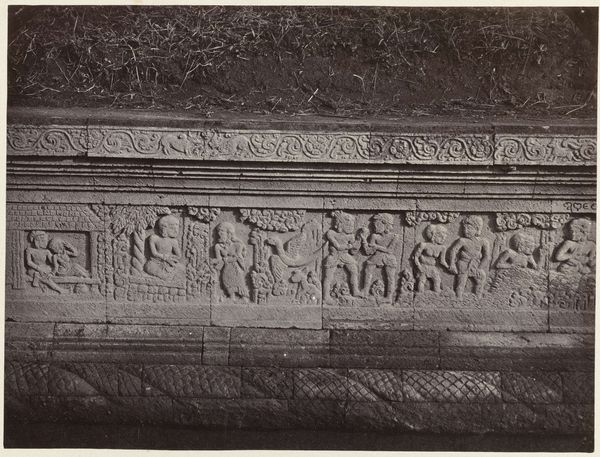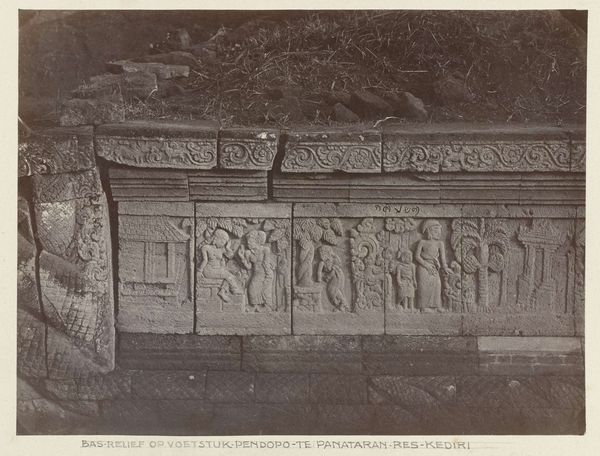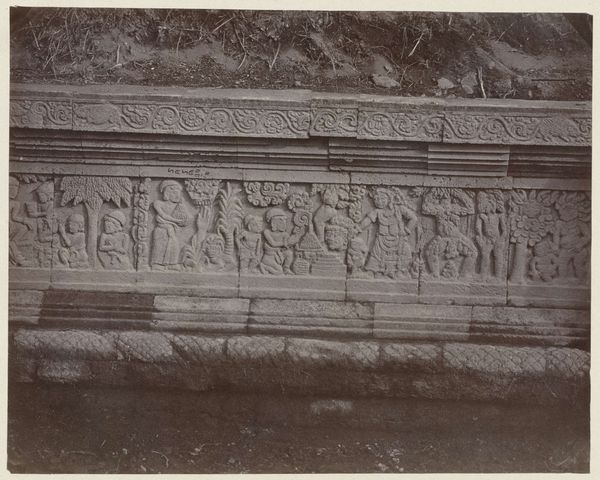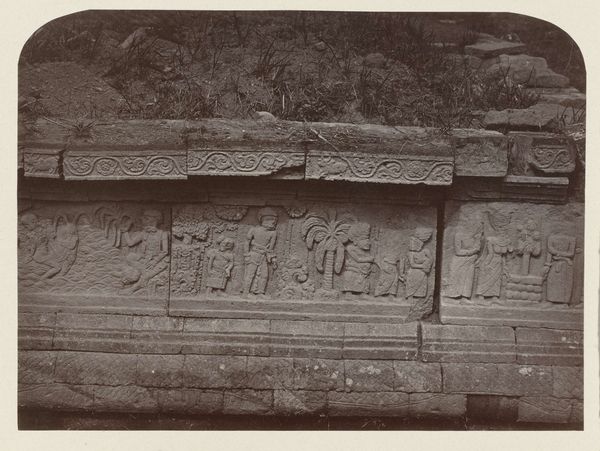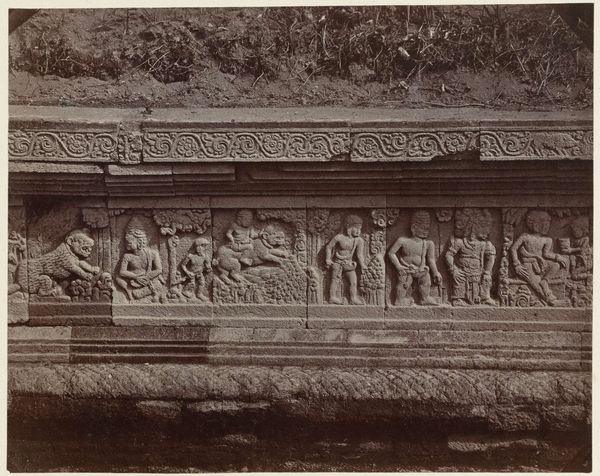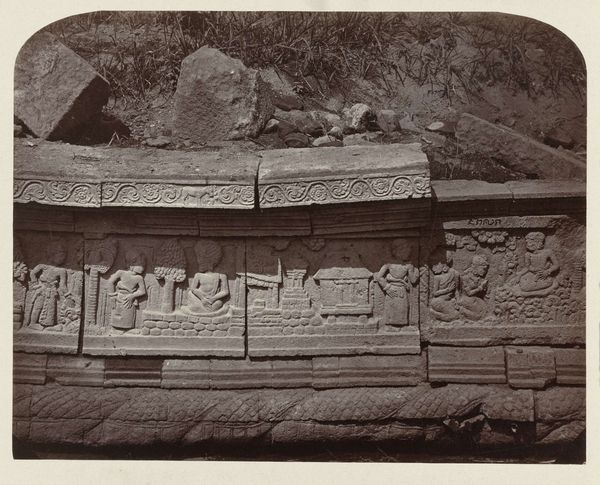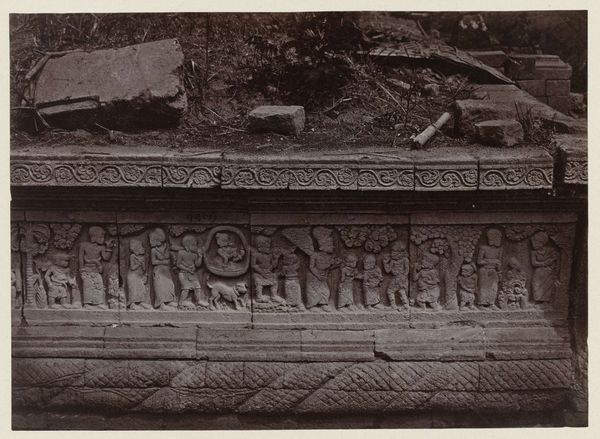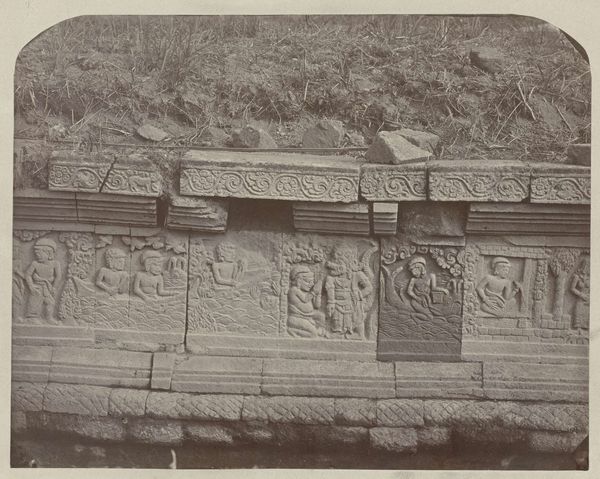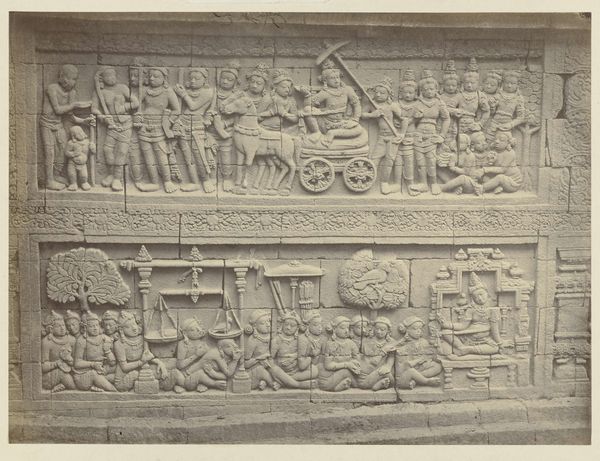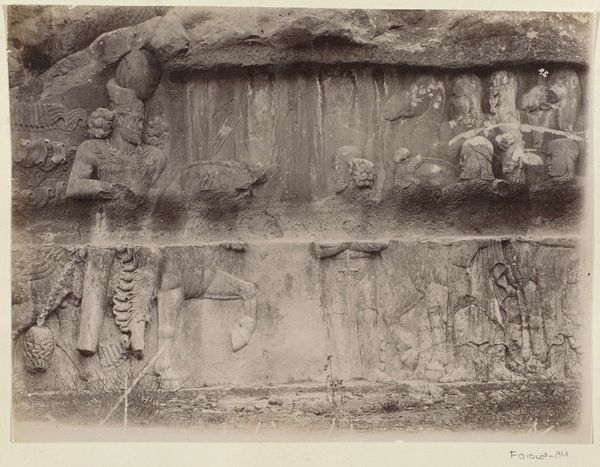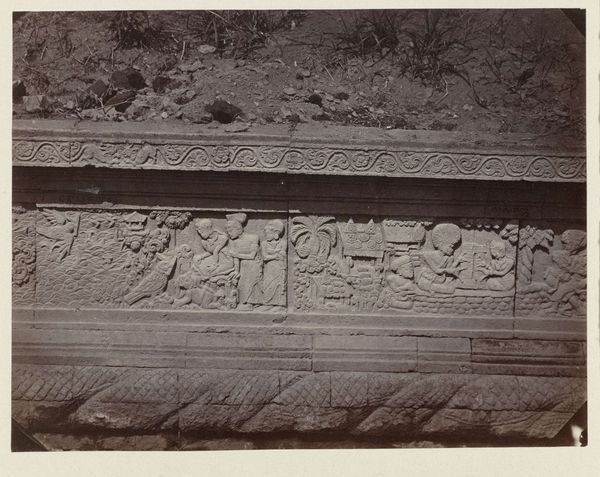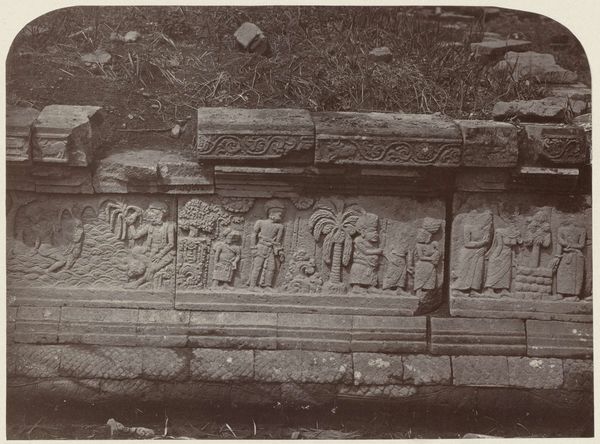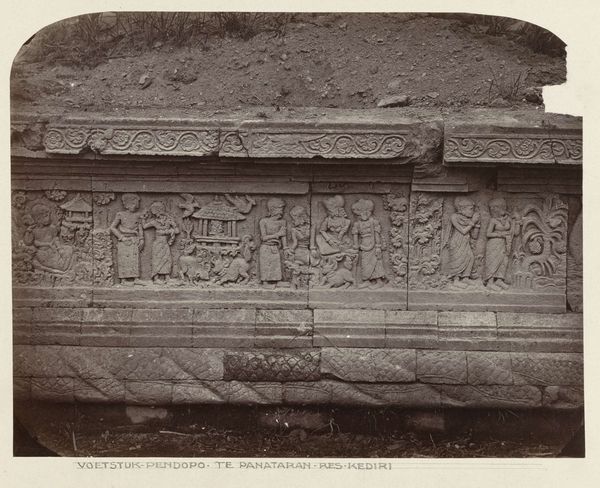
Basreliëf op het pendopo voetstuk aan de oostzijde van Candi Panataran. Possibly 1867
0:00
0:00
carving, print, relief, photography
#
carving
#
narrative-art
# print
#
carving
#
asian-art
#
relief
#
landscape
#
figuration
#
photography
Dimensions: height 210 mm, width 260 mm
Copyright: Rijks Museum: Open Domain
Curator: This photograph by Isidore Kinsbergen, possibly from 1867, documents a bas-relief on the pendopo base at Candi Panataran. It's a fascinating glimpse into 19th-century archaeological documentation, particularly of Javanese art. Editor: The initial impression is weighty. Stone, of course, has that feeling, but here it’s compounded by the compression of the narrative scenes. It's like witnessing stories etched into a geology itself. Dark, almost sepulchral. Curator: Precisely. Photography in this period played a vital role in inventorying cultural heritage for colonial administrations and academic institutions. The image makes this cultural treasure accessible and reinforces the legacy and political control in a visual context. Editor: And the artistry—look at how Kinsbergen framed this. The texture is gorgeous; it's almost palpable. You can nearly feel the patience and devotion that shaped the narratives. It invites you to run your hand along its carved face, following the outlines. A somber mood but compelling. Curator: Kinsbergen’s work here highlights how photographic reproduction facilitated the study and appreciation of art across vast geographical distances. It gave shape to a sort of pan-Asian, connected world in art. But one always wonders about his intention in documenting this relic. Editor: True, every photo has an unspoken question about motive. But maybe we give too little credit sometimes and fail to observe its purity of transmission. It invites us into an introspective journey… A conversation between time periods, I would like to think. Curator: Considering how art historical narratives get constructed, Kinsbergen’s photograph prompts a broader consideration of whose stories were deemed important and the complex web of historical forces at play. Editor: So, in a way, we become part of the narrative. I am content with it all.
Comments
No comments
Be the first to comment and join the conversation on the ultimate creative platform.
